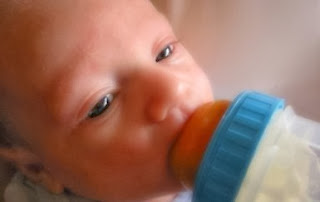Symptoms usually start 30 minutes to 2 hours after eating or ingesting milk or milk products. Many people suppose they are a result of the signs of lactose intolerance, quite common symptoms. Sometimes individuals who have by no means had issues with milk or dairy merchandise suddenly have lactose intolerance.
Lactose intolerance is attributable to diminished or absent activity of lactase that forestalls the splitting of lactase deficiency. Lactase deficiency might occur for considered one of three causes, congenital, secondary or developmental. It may happen due to a congenital absence of lactase attributable to a mutation within the gene that's chargeable for producing lactase.
Signs of the commonest kind of lactose intolerance-adult lactose intolerance-typically start through the teen or grownup years and continue for life. In uncommon instances, newborns are lactose-intolerant. Lactose intolerance isn't the same factor as a food allergy to milk. Symptoms of a milk allergy are normally more extreme than these from lactose intolerance.
Symptoms of lactose intolerance in adults
The main signs include diarrhoea three or more instances a day, flatulence, stomach rumbling, bloated abdomen, stomach cramps, stomach pains and feeling sick.The quantity of lactose that it takes to trigger your symptoms will vary from individual to person. The symptoms of lactose intolerance may be much like those of other circumstances, corresponding to irritable bowel syndrome (IBS) or milk protein intolerance. IBS is power dysfunction that affects the digestive system. Milk protein intolerance is hostile response to the protein in milk from cows, but it surely doesn't contain the immune system.
Signs in infants
Babies and toddlers with lactose intolerance lack the enzyme lactase, which is critical to break down lactose, the sugar present in milk. A baby or toddler with lactose intolerance could also be fussy after feedings.How widespread is lactose intolerance in babies? As a result of milk is the pure first meals of all people, babies are typically born ready, willing and able to drink (and digest) milk. If your baby was born early, he could not have enough lactase to adequately break down lactose. Curiously, lactose intolerance becomes extra common in kids after age two, since lactase ranges start to taper off after that age.
People of some ethnic backgrounds are extra prone to lactose intolerance than folks from a Northern European background. In babies, although, the most definitely cause of lactose intolerance is prematurity. Soy milk and/or soy-primarily based method can be used in lieu of cow’s milk or cow’s milk formula.









0 comments:
Post a Comment